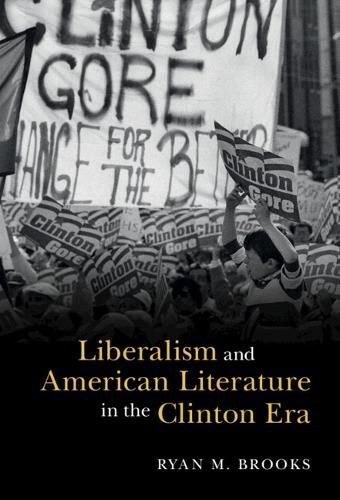Readings Newsletter
Become a Readings Member to make your shopping experience even easier.
Sign in or sign up for free!
You’re not far away from qualifying for FREE standard shipping within Australia
You’ve qualified for FREE standard shipping within Australia
The cart is loading…






Liberalism and American Literature in the Clinton Era argues that a new, post-postmodern aesthetic emerges in the 1990s as a group of American writers - including Mary Gaitskill, George Saunders, Richard Powers, Karen Tei Yamashita, and others - grapples with the political triumph of free-market ideology. The book shows how these writers resist the anti-social qualities of this frantic right-wing shift while still performing its essential gesture, the personalization of otherwise irreducible social antagonisms. Thus, we see these writers reinvent political struggles as differences in values and emotions, in fictions that explore non-antagonistic social forms like families, communities and networks. Situating these formally innovative fictions in the context of the controversies that have defined this rightward shift - including debates over free trade, welfare reform, and family values - Brooks details how American writers and politicians have reinvented liberalism for the age of pro-capitalist consensus.
$9.00 standard shipping within Australia
FREE standard shipping within Australia for orders over $100.00
Express & International shipping calculated at checkout
Liberalism and American Literature in the Clinton Era argues that a new, post-postmodern aesthetic emerges in the 1990s as a group of American writers - including Mary Gaitskill, George Saunders, Richard Powers, Karen Tei Yamashita, and others - grapples with the political triumph of free-market ideology. The book shows how these writers resist the anti-social qualities of this frantic right-wing shift while still performing its essential gesture, the personalization of otherwise irreducible social antagonisms. Thus, we see these writers reinvent political struggles as differences in values and emotions, in fictions that explore non-antagonistic social forms like families, communities and networks. Situating these formally innovative fictions in the context of the controversies that have defined this rightward shift - including debates over free trade, welfare reform, and family values - Brooks details how American writers and politicians have reinvented liberalism for the age of pro-capitalist consensus.